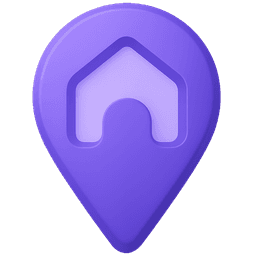The real estate market in 2025 offers more opportunity than ever for beginners looking to build long-term wealth. With evolving consumer behavior, new technologies, and shifting market conditions, several niches stand out as especially beginner-friendly.
In this guide, we’ll break down the top five real estate investment niches for new investors—wholesaling, land investing, turnkey rentals, multifamily properties, and fix-and-flip strategies—highlighting their key benefits, challenges, and how to get started.
1. Wholesaling: The Fastest Path to Real Estate Income
Wholesaling is a powerful launchpad for beginners because it requires minimal capital and no property ownership. Wholesalers act as the connector between motivated sellers and cash buyers—securing a property under contract and assigning that contract for a fee.
Why Wholesaling Works for Beginners:
- Low Risk: No need to purchase or renovate property
- Quick Returns: Deals can close in as little as a few weeks
- Skill Development: Learn negotiation, marketing, and lead generation
How to Succeed:
- Lead Generation Tools: Use software to identify distressed properties and build lists
- Buyers List: Build a database of reliable cash buyers
- Contract Knowledge: Understand assignment clauses and stay compliant
Be Aware:
Wholesaling is becoming more regulated. In many states, you’ll need a real estate license to legally assign contracts. It’s critical to understand local laws and work with professionals or mentors as you build experience.
2. Land Investing: Simple, Scalable, and Overlooked
Land investing is one of the simplest real estate models—no tenants, no renovations, and minimal maintenance. Investors buy vacant land at a discount and resell it, lease it, or develop it for higher returns.
Why It’s Great for Beginners:
- Low Entry Cost: Land is often cheaper than developed property
- Low Competition: Fewer investors focus on land
- Scalable: Easily expand by acquiring multiple lots
Getting Started:
- Look for undervalued lots in rural or developing areas
- Research zoning laws and utility access before purchase
- Use seller financing to lower upfront costs
Challenges:
Due diligence is critical. Beginners should investigate zoning restrictions, flood zones, and development potential before making offers.
3. Turnkey Rentals: Passive Income Without the Headache
Turnkey rentals are fully renovated properties, often with tenants in place and property management services bundled in. They’re perfect for beginners seeking passive income without dealing with day-to-day management.
Benefits:
- Hands-Off Investing: Property managers handle the details
- Immediate Cash Flow: Properties are rent-ready or already producing income
- Market Accessibility: Many turnkey providers operate in stable, high-demand markets
How to Begin:
- Vet turnkey providers carefully and analyze past performance
- Choose cash-flow-positive markets with long-term appreciation
- Use calculators to model your monthly returns and expenses
Things to Watch:
Turnkey properties may carry premium pricing. Always evaluate the ROI and verify that the provider’s numbers are accurate before purchasing.
4. Multifamily Properties: Rental Income That Scales
Multifamily housing (duplexes, triplexes, quads) offers consistent rental income and long-term scalability. In 2025, as affordability challenges limit homeownership, demand for quality rental units is surging.
Why Beginners Should Consider Multifamily:
- Economies of Scale: One roof, multiple rent checks
- Steady Cash Flow: Reduces risk of full vacancy
- Financing Options: Live-in buyers can use low-down FHA loans on up to 4 units
Getting Started:
- Start with small multifamily properties to learn the ropes
- Invest in areas with strong rental demand and employment growth
- Consider hiring a property manager as you scale
Challenges:
Managing tenants and maintenance across multiple units can be complex. Professional property management becomes essential as you grow your portfolio.
5. Fix-and-Flip: Profits from Strategic Renovation
Fix-and-flip investing involves buying distressed homes, renovating them, and reselling for a profit. For beginners who want hands-on involvement, this niche offers a fast track to learning construction and valuation.
Why It Works in 2025:
- High Upside Potential: Strategic upgrades can boost value dramatically
- Short Holding Period: Projects can complete in a few months
- Constant Demand: Buyers are still looking for move-in-ready homes
Steps to Take:
- Use MLS, foreclosure lists, or networking to find discounted homes
- Build a trustworthy team of contractors and inspectors
- Secure financing through hard money lenders or private partners
What to Watch:
Misjudging repair costs, timelines, or ARV (After Repair Value) can eat into profits quickly. Successful flippers plan conservatively and build in buffers for unexpected expenses.
Summary Table
Niche: Wholesaling
Key Benefits: Low capital, fast cash
Challenges: Legal/licensing regulations
Niche: Land Investing
Key Benefits: Simple, no tenants
Challenges: Zoning and land use restrictions
Niche: Turnkey Rentals
Key Benefits: Passive income, ready-to-go
Challenges: Higher upfront pricing, provider risk
Niche: Multifamily
Key Benefits: Scalable cash flow
Challenges: Tenant and property management
Niche: Fix-and-Flip
Key Benefits: Quick profits, hands-on
Challenges: Cost overruns, project risk
Final Thoughts
The best real estate niche for you depends on your goals, budget, and risk tolerance. Whether you're drawn to passive income through turnkey rentals or prefer a more active role with wholesaling or flipping, there’s a path that fits your strengths.
Beginner investors in 2025 are better equipped than ever with tools, data, and education to make smart, confident moves. The key is to pick a niche, commit to learning, and take consistent action. Over time, the experience and cash flow will follow.

